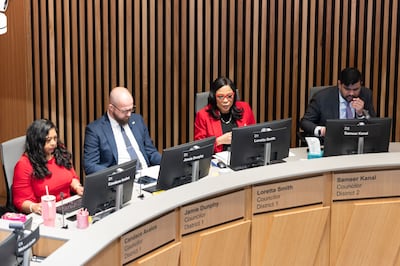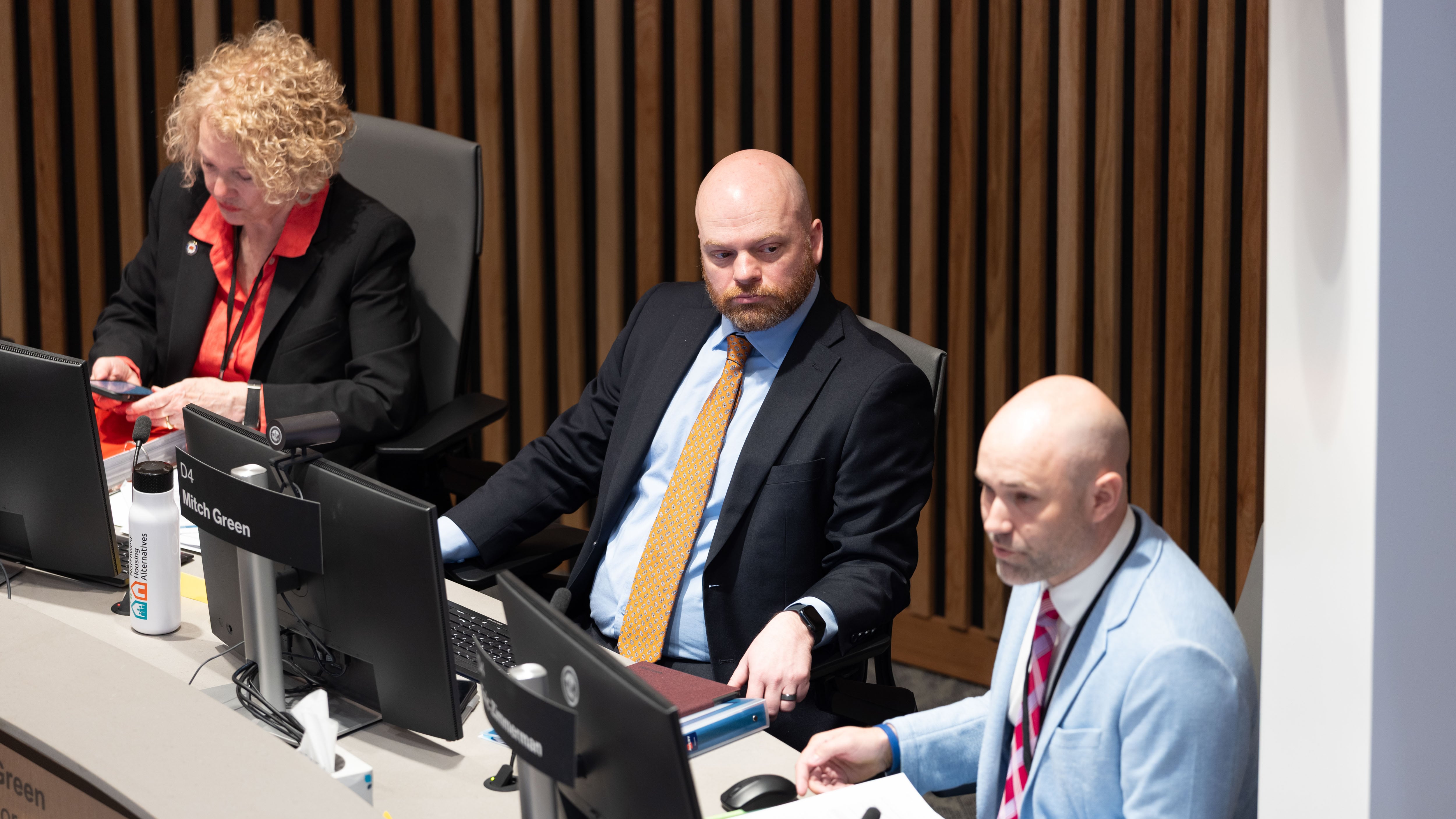A proposal by two city councilors to eliminate allocation of all general fund dollars to Prosper Portland—a total of $11 million—was struck down after heated debate at Wednesday’s marathon budget session of the Portland City Council.
Councilors Jamie Dunphy and Mitch Green, who introduced the idea, proposed that the agency fill the $11 million hole using its Strategic Investment Fund, which is spent on economic development projects. But as The Oregonian reported earlier this week, Prosper’s leaders publicly stated they wouldn’t transfer that money over. (Unlike every other city bureau, Prosper’s board makes ultimate agency decisions—not the City Council.) Instead, Prosper leaders said in a statement, they would cut programs aimed at helping small businesses stay afloat.
The proposed amendment failed just before 7 pm on Wednesday night. Four councilors voted for the proposal. Eight voted against it.
By 10 pm, the council still had not discussed some of the meatier and more controversial amendments around policing and parks.
Prosper’s response to the proposal earlier this week became a point of intense discussion at Wednesday’s evening budget session, which is likely to stretch late into the night.

Dunphy at the top of the discussion said his proposal was not intended to gut Prosper: “Please let me be clear. Prosper is not being defunded or dismantled with this amendment.” Dunphy added, “No other agency would blast emails to every past permit holder or program attendee and be disingenuous about a proposal facing this body.”
Noting the economic development agency’s unique governance, Councilor Angelita Morillo said that Prosper “feels like an unelected board is able to hold a city government hostage in our efforts to exercise oversight and guidance during what is one of the most brutal budget discussions we’re having.”
Morillo added that “desperate times call for desperate measures, and we’re asking this one agency not to be treated with kid gloves. Prosper and the Police [Bureau] get treated with kid gloves.”
Council President Elana Pirtle-Guiney opposed the idea, saying she wished Mayor Keith Wilson’s proposed budget had included more funding for economic development, not less, and that Green and Dunphy’s proposal would hurt that further.
“The budget we have been handed does very little around economic development at a time when we hear repeatedly that we need investments in good jobs, support for small businesses, if we want Portland to look like Portland again,” Pirtle-Guiney said. “If we want to have that conversation over more control over economic development programs, we need to be having that conversation, not pulling out the one point of leverage we have over what programs happen at Prosper Portland.”
Though a city agency, Prosper Portland has unusual independence from the City Council. Its board makes decisions about how Prosper money is distributed, and sometimes spends those dollars on controversial and risky projects, like the recent example of a $7 million loan to the Made in Old Town shoe manufacturing campus. Made in Old Town used that money to buy two adjacent buildings for $7.4 million that had just recently been appraised at $3.8 million.
During public testimony after the vote in which the proposal was defeated, one testifier brought up the Made in Old Town loan.
“The most alarming part was that this paid $7.4 million for two buildings that were appraised at $3.8 million. Who the hell did I just bail out with my taxpayer dollars?” she said. “Whose real estate investment portfolio now looks better?”
For decades, Prosper’s bread and butter was creating urban renewal districts with tax-increment financing to boost economic development and jobs. But that tool went out of favor as its work appeared to foster gentrification. Since then, Prosper has tried to pivot and broaden the types of projects it undertakes to spur development—with mixed success.
Still, Prosper has continued to work with an independence that members of the current council are now questioning more publicly.
Though Green and Dunphy’s proposal died, they could bring back a revised amendment June 11 when the final budget must be approved.

